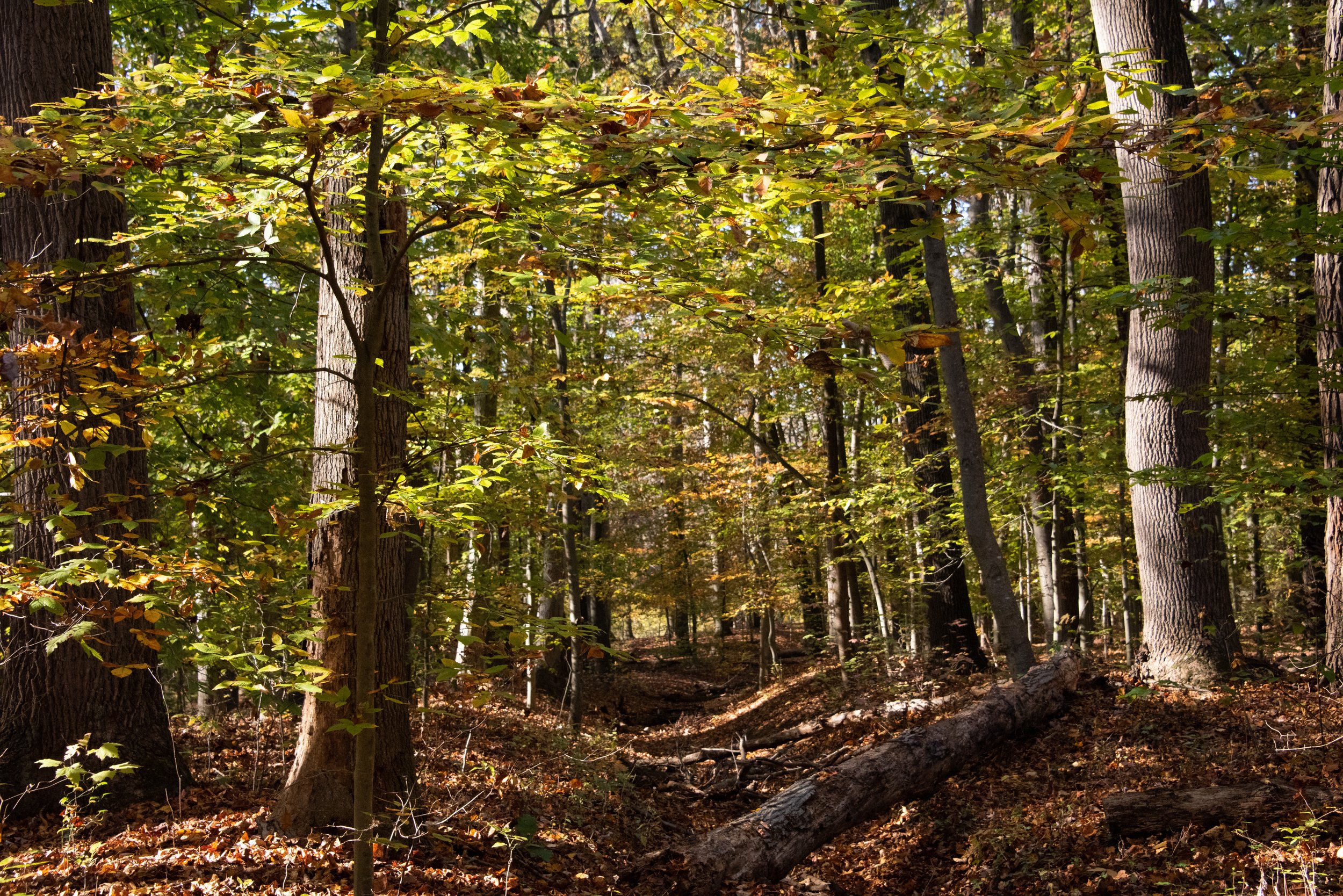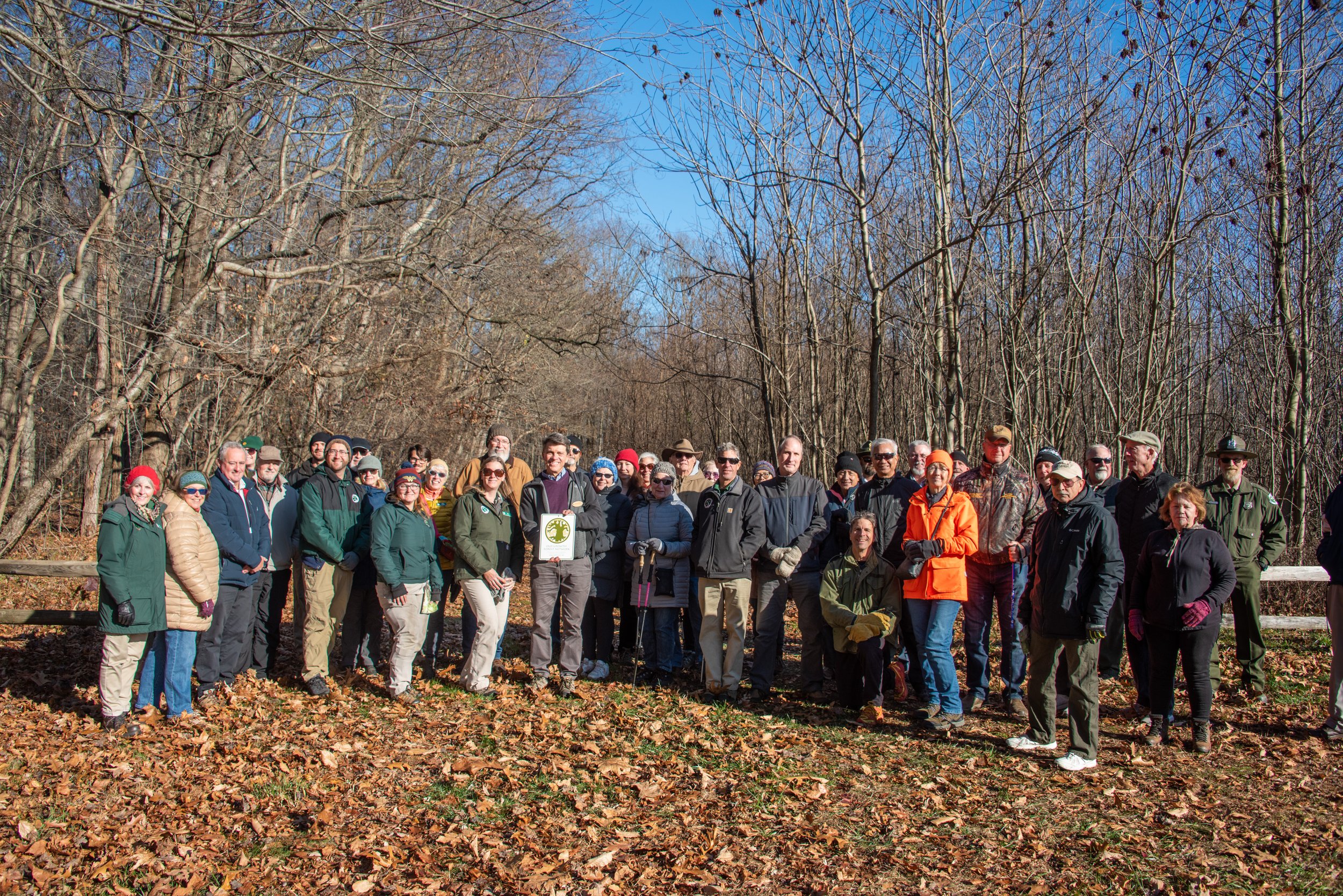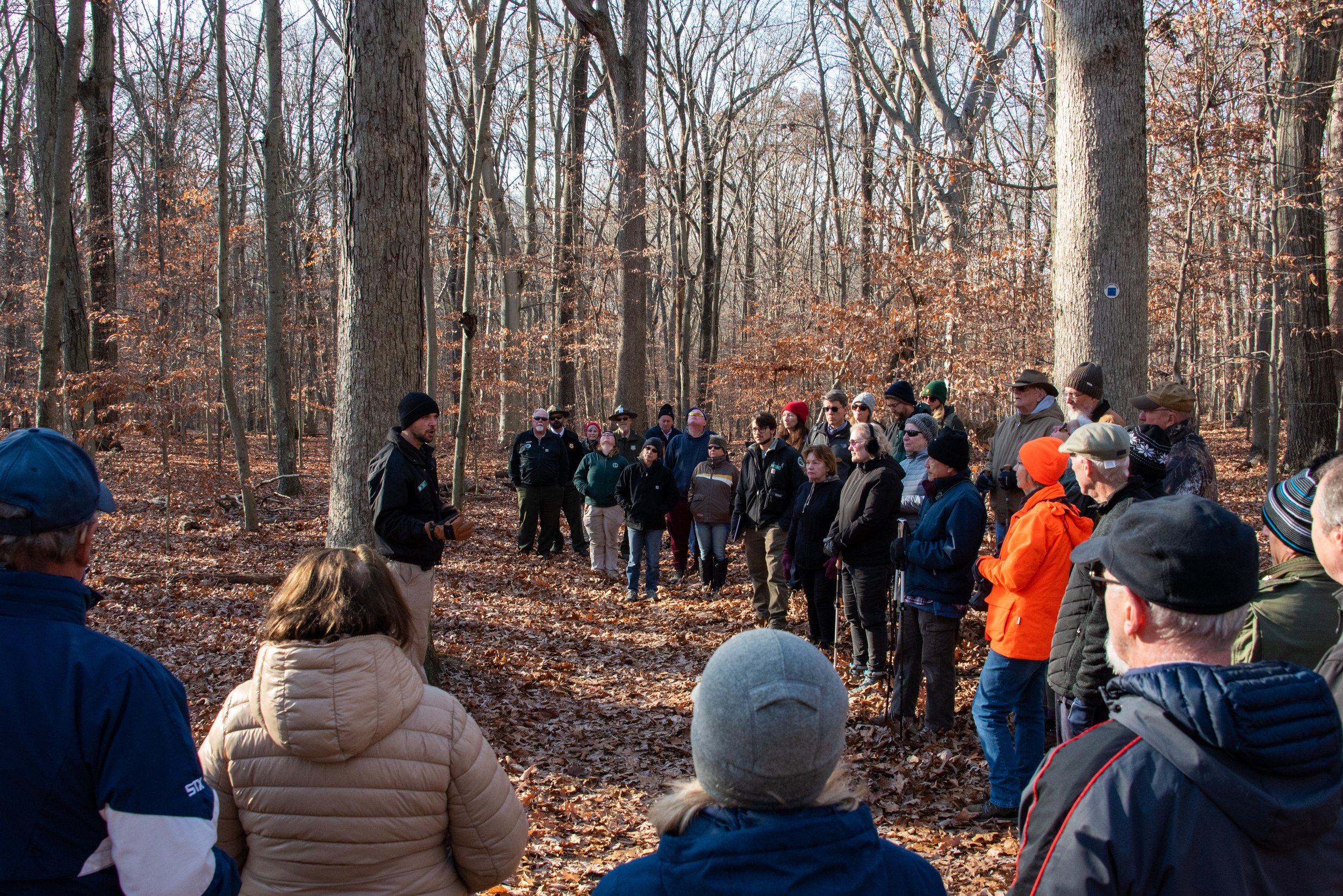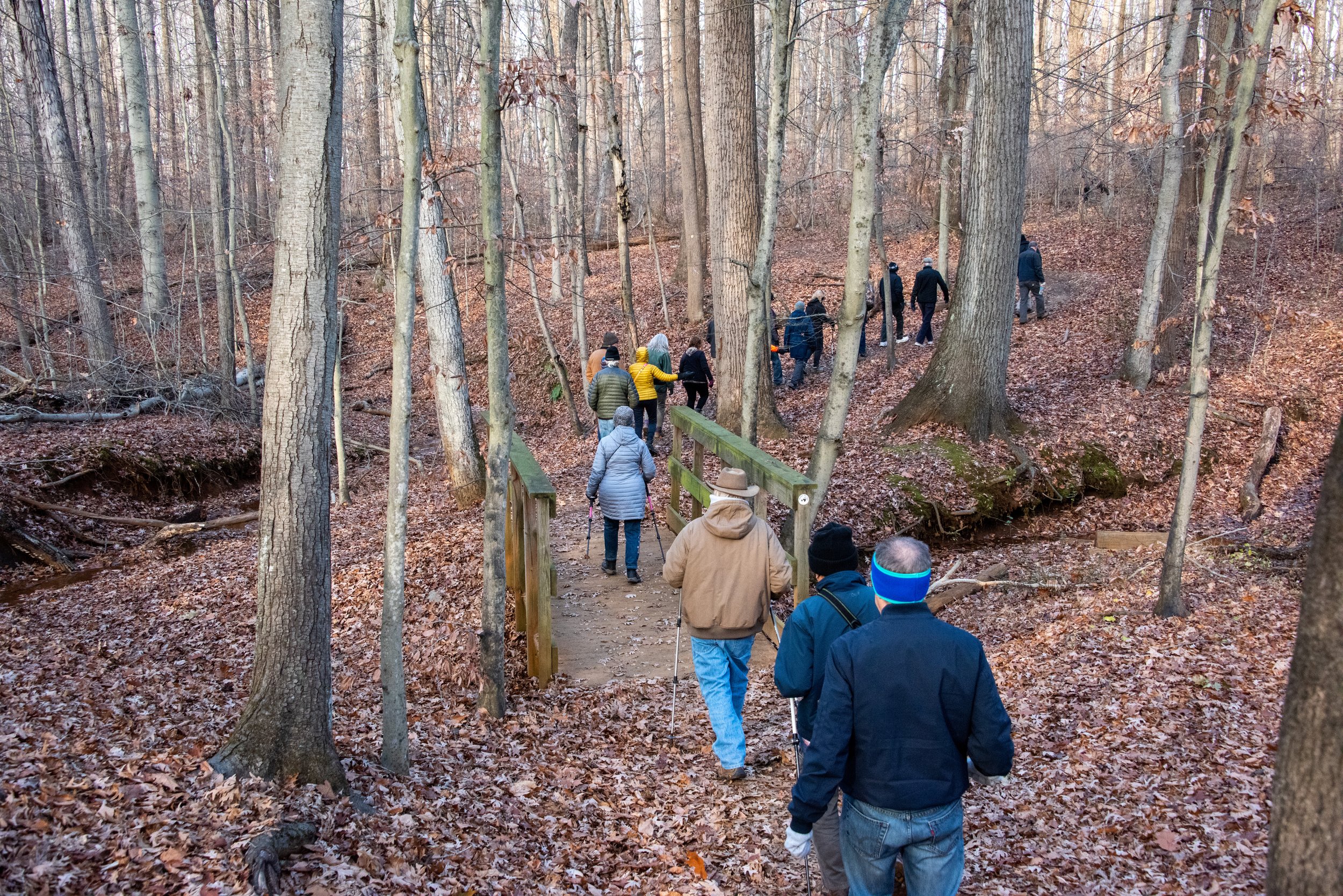
Clayton Park
Clayton Park in rural Upper Freehold is located amidst the rolling farmland of Western Monmouth County. One of the most beautiful parks in the County Park System, the property is known for stately stands of red and white oak, beech, ash, and birch trees.
Clayton Park lies on the western end of the cuesta ridge that extends to Hartshorne Woods Park, and it was the Park System’s first large land acquisition in the rural western part of the County. From a high elevation of 240 feet, the parkland slopes down to 110 feet at the lowest level of Doctor’s Creek, which drains to Crosswicks Creek, a tributary of the Delaware River. Due to better soil and moisture conditions, the Piedmont environment typically hosts more species than those found on the outer coastal plain. Because the Clayton woods have not been logged for many decades, they contain some of highest quality hardwood forest in the County.
The old growth woods are dominated by American beech, white and red oak, and birch trees and have a diverse and lush understory. Black oak, tulip poplar, and shagbark hickory trees are also plentiful. A small man-made pond at the intersection of forest and fields provides some interesting edge habitat for many species, including beaver, turtles, and wading birds like egrets, heron, and snow geese. The forest and field juncture also provides habitat for quail, pheasant, and wild turkey. Spice bush and greenbriar shrubs and skunk cabbage thrive in wet areas. Interesting perennials include strawberry bush, beechdrops, rattlesnake plant, roundlobe hepatica, hobblebush, American golden saxifrage, trumpet vine, ladyfern, and cinnamon fern. Six miles of trails through Clayton Park provide access to some of the best forest landscapes and spring wildflower sites in the County.





View All Network Forests in the State of New Jersey
View All Network Forests in the U.S.
View All Forest Designations
